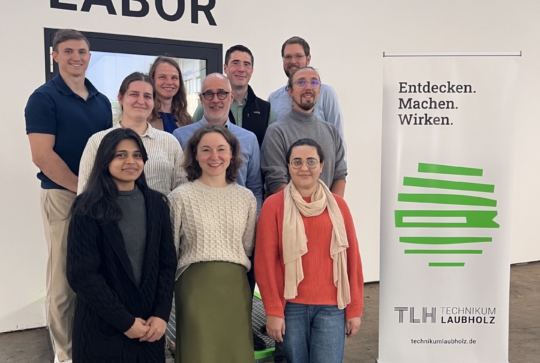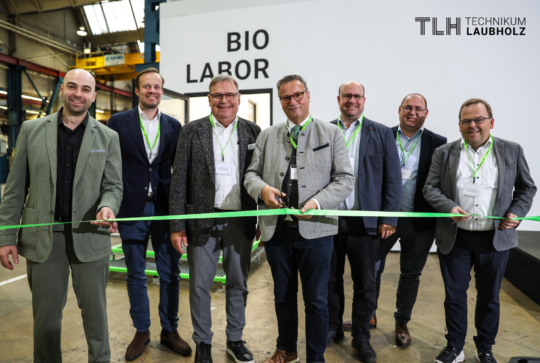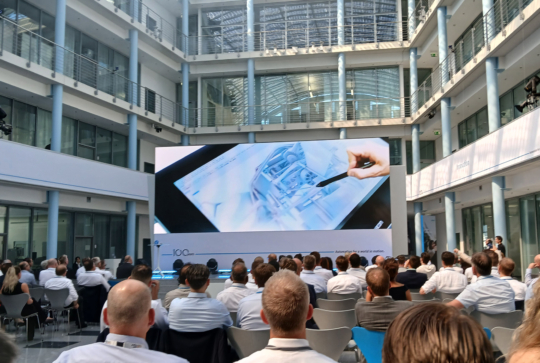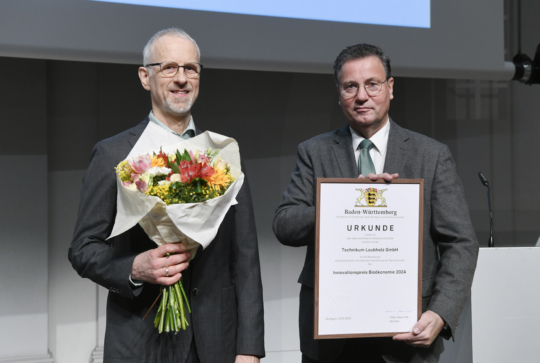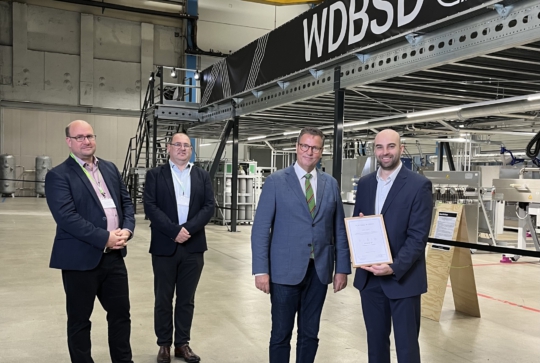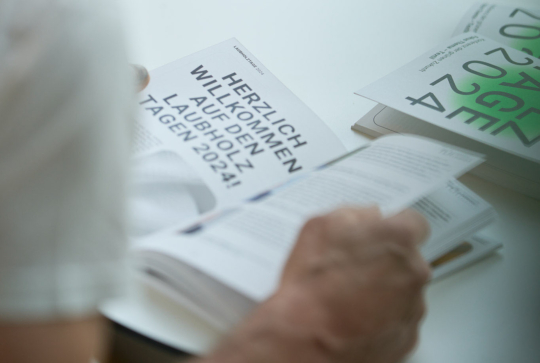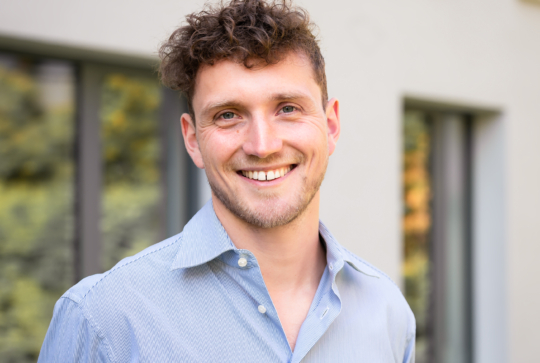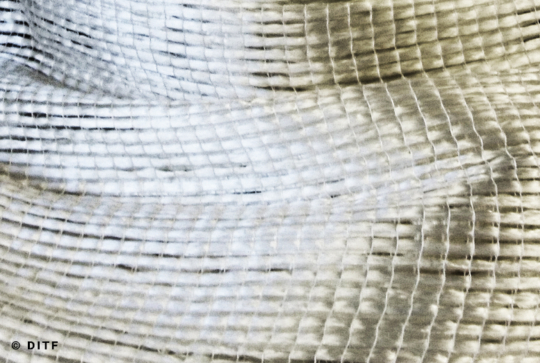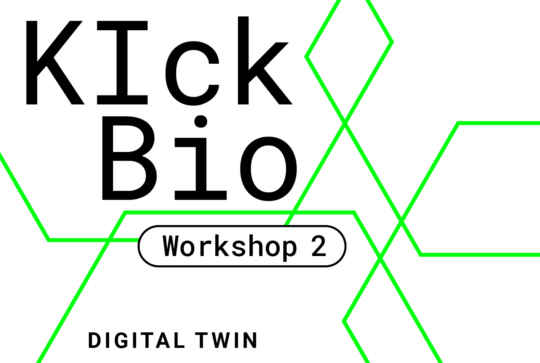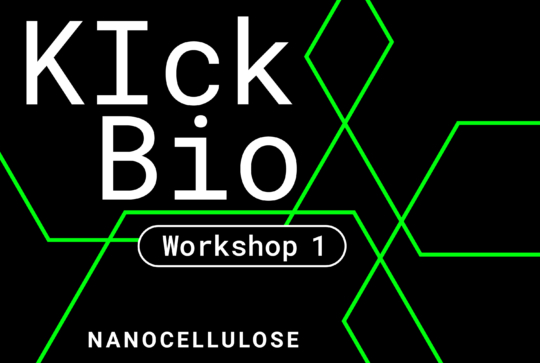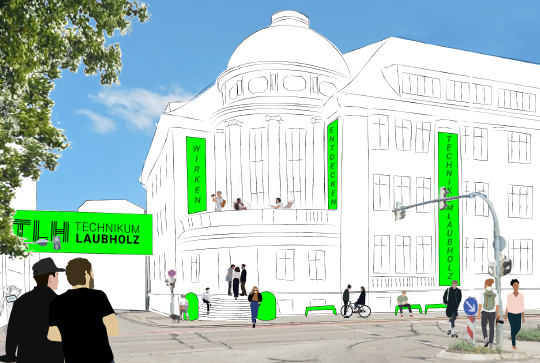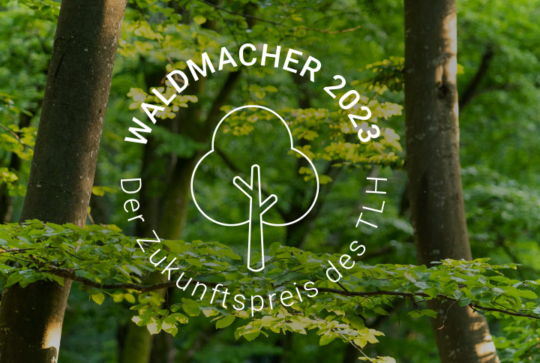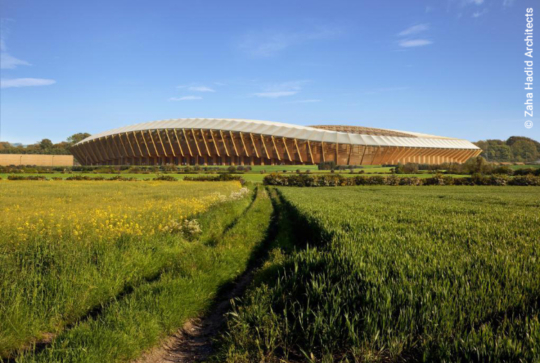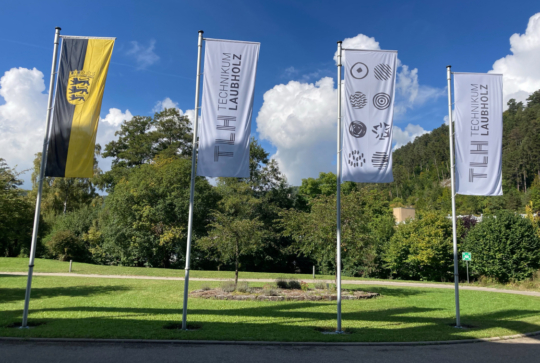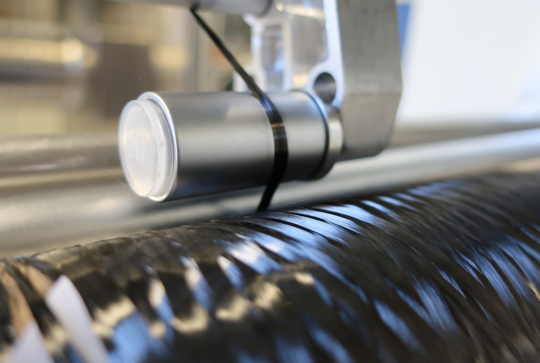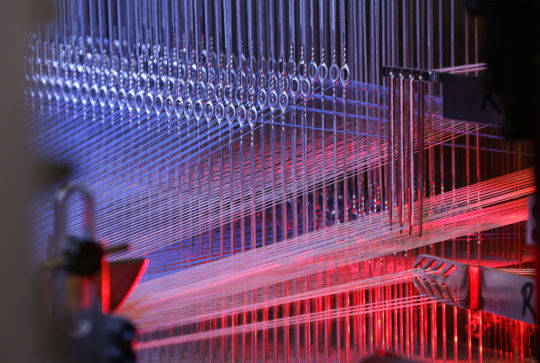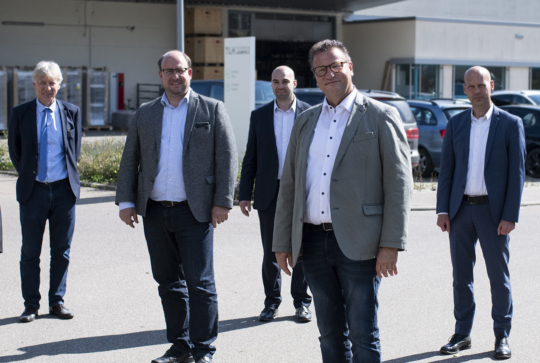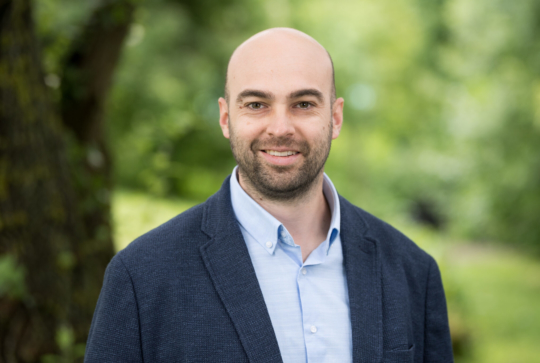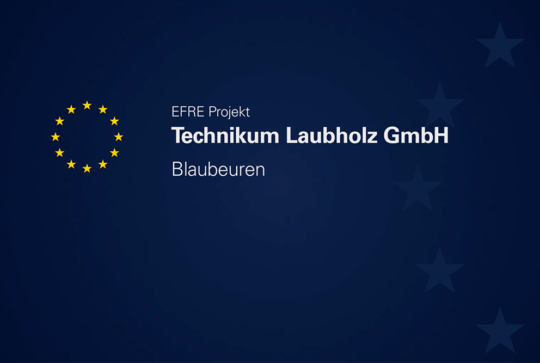Successful partnerships for sustainable fashion: a look behind the scenes of the WDBSD TX® collection
The successful realisation of our first collection from WDBSD TX®️ is the result of an outstanding collaboration with our valuable production partners. Their active support and expertise were crucial in making our vision of a sustainable fashion collection a reality. A deeper insight into the role of each partner illustrates the importance of their contributions to this ground-breaking project.
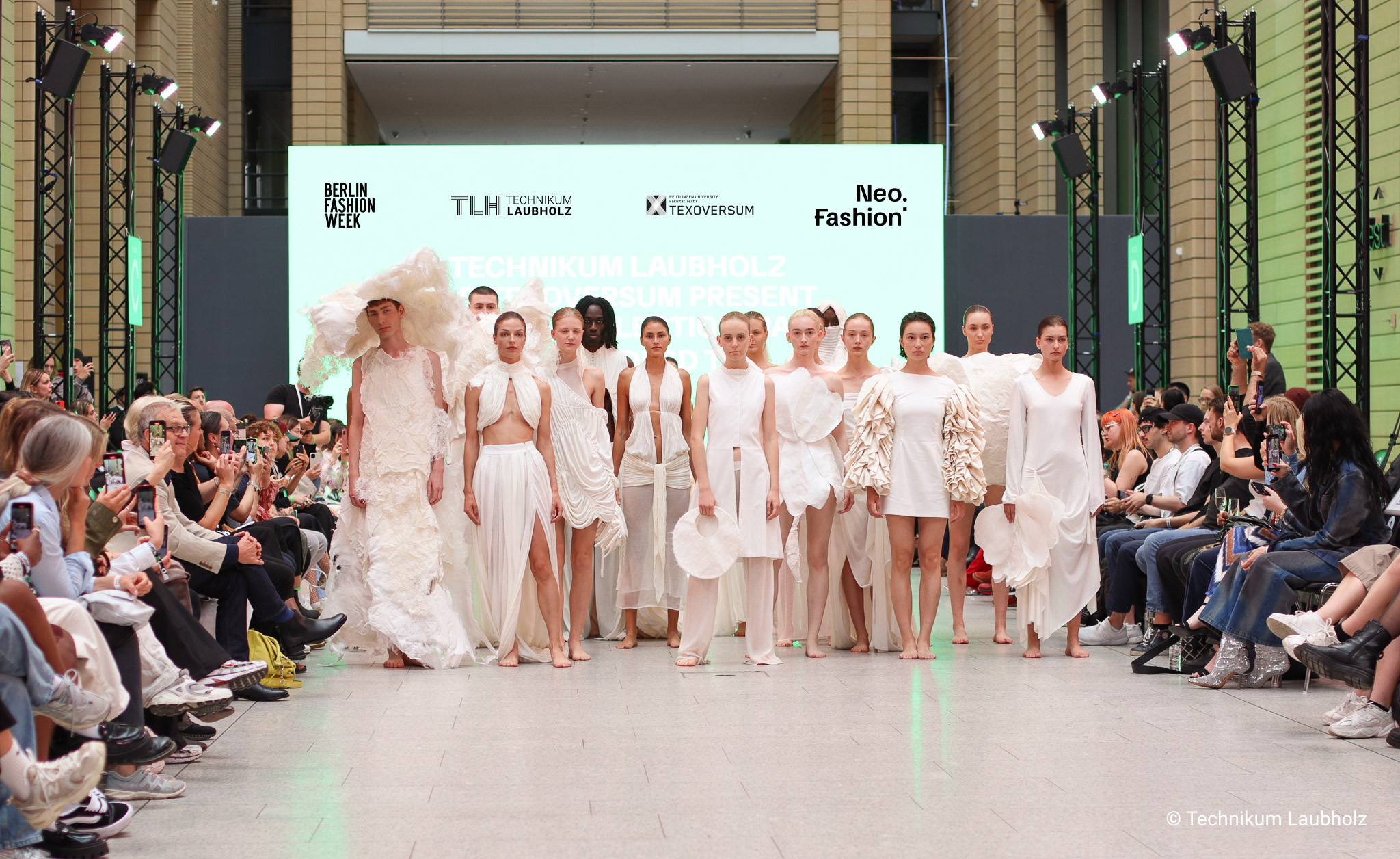
Traugott Baumann KG (Winterlingen, BW) played an important role in texturing the fiber. Thanks to precise processing techniques and in-depth expertise, the company was able to improve the structure of the end product. Texturisation is a crucial step in the entire textile production chain, as it forms the basis for high-quality materials. The expertise of Traugott Baumann KG contributed significantly to improving the quality and performance of our collection.
The processing of staple fibers and subsequent carding are further important steps in the production process. Staple fiber processing enables precise control over fiber length and orientation, which in turn influences the consistency of the end product. During carding, the previously disordered fibers are brought into a parallel arrangement, which allows the fibers to lie softly and loosely next to each other. This facilitates the subsequent spinning into a fine yarn and ensures an even distribution of the fibers in the textile. As part of our partnership with the Deutschen Instituten für Textil- und Faserforschung Denkendorf (DITF), the Competence Centre for Biopolymer Materials and the Competence Centre for Staple Fibers, Weaving & Simulation have taken on this task. Thanks to their expertise and technology, they were able to ensure precise processing of the staple fibers and efficient carding, resulting in high-quality textiles with outstanding properties.
Yarn production marked a critical step in textile production. As the basic building block for the woven or knitted fabric, the yarn determined essential characteristics such as strength, elasticity, softness and durability. In our partnership with Wilhelm Stahlecker GmbH and Spindelfabrik Süßen GmbH (both in Süßen, BW), part of the Rieter Group, Winterthur/CH, the world’s leading supplier for the production of yarn from staple fibers in spinning mills, yarn production was carried out on their machines and components specially designed for this application. Every aspect of yarn production was carried out with the utmost precision and care. The yarn quality developed was processed using two different techniques, flat knitting and circular knitting. This diversity enabled us to ensure that each material has the specific properties required for its particular application.
Fashion design students from the TEXOVERSUM School of Textiles at Reutlingen University have developed the first collection from the fiber with great commitment and the highest level of professionalism in the faculty’s laboratories. Under the direction of Prof. Natalie Seng, Dean of Studies for Fashion & Textile Design, the aim was to generate the widest possible variety of materials from the fiber within a set time frame. In addition to flat and circular knitted fabrics, nonwovens were also created. In addition, various material manipulation techniques such as pleating were used to present a wide range of possibilities. This allowed the students to explore and design different materials with different properties and applications and gave the collection a variety of creative possibilities.
In the final stage of textile production, the yarn was processed into a knitted fabric, and the finished material was then finished. This step required specialized techniques and expertise in order to achieve the desired properties of the end product. TRIGEMA W. Grupp KG (Burladingen, BW), a leading company in sustainable textile production, took on this task with the utmost precision and efficiency. State-of-the-art technology was used to ensure optimum quality and performance of the knitted material. Particular attention was paid to the choice of finishing materials to ensure that the end product is comfortable to wear, durable, and hardwearing. Strict quality controls and compliance with environmentally friendly standards ensured that the finished material met the highest standards while being produced in a sustainable and ethically responsible manner.
Through their regional production, our partners not only contributed to strengthening the economy in Baden-Württemberg, but also showed how local production and innovative technology can go hand in hand to create high-quality and sustainable products. Last but not least, we would like to thank the Allianz Faserbasierte Werkstoffe Baden-Württemberg e.V. (AFBW) for their crucial role in facilitating regional contacts.
Finally, we would also like to express our sincere thanks to the Baden-Württemberg Ministry of Food, Rural Areas and Consumer Protection. Their generous support has enabled us to realize this ambitious project and create a collection that redefines the boundaries of the sustainable fashion industry.
We are proud to work with such committed partners and look forward to continuing to develop innovative solutions for a sustainable future together.
More photos and videos of the fashion show on: Fashionweek and Laubholztagen.
More information about the fibers: WDBSD TX®
A cooperation of:
Enabled by:

